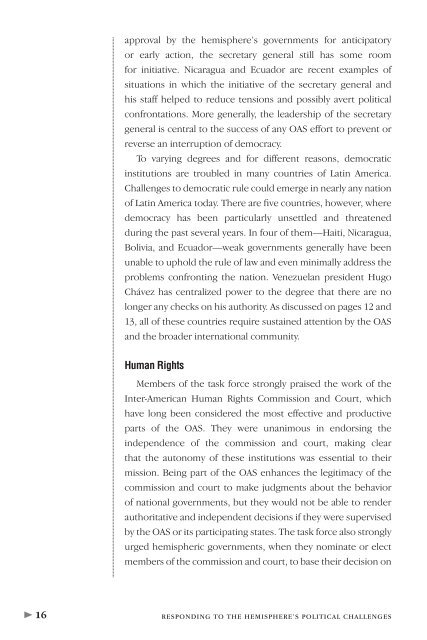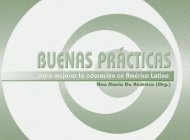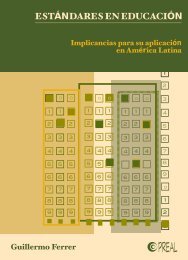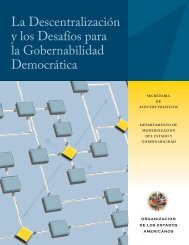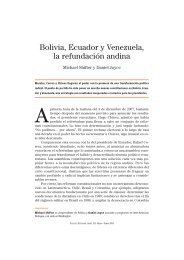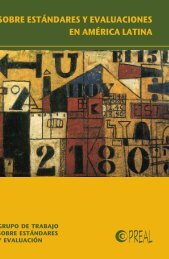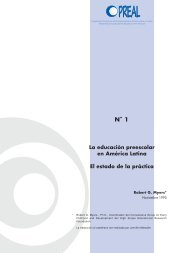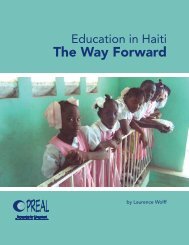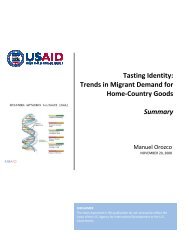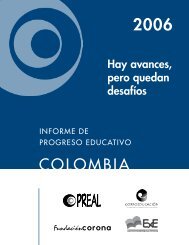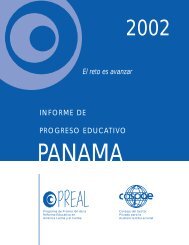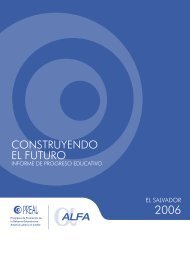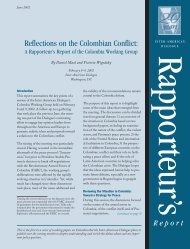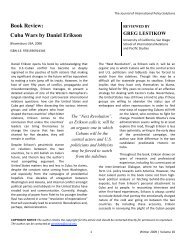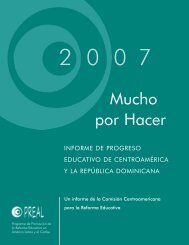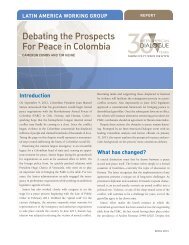View PDF Document - Inter-American Dialogue
View PDF Document - Inter-American Dialogue
View PDF Document - Inter-American Dialogue
Create successful ePaper yourself
Turn your PDF publications into a flip-book with our unique Google optimized e-Paper software.
approval by the hemisphere’s governments for anticipatory<br />
or early action, the secretary general still has some room<br />
for initiative. Nicaragua and Ecuador are recent examples of<br />
situations in which the initiative of the secretary general and<br />
his staff helped to reduce tensions and possibly avert political<br />
confrontations. More generally, the leadership of the secretary<br />
general is central to the success of any OAS effort to prevent or<br />
reverse an interruption of democracy.<br />
To varying degrees and for different reasons, democratic<br />
institutions are troubled in many countries of Latin America.<br />
Challenges to democratic rule could emerge in nearly any nation<br />
of Latin America today. There are five countries, however, where<br />
democracy has been particularly unsettled and threatened<br />
during the past several years. In four of them—Haiti, Nicaragua,<br />
Bolivia, and Ecuador—weak governments generally have been<br />
unable to uphold the rule of law and even minimally address the<br />
problems confronting the nation. Venezuelan president Hugo<br />
Chávez has centralized power to the degree that there are no<br />
longer any checks on his authority. As discussed on pages 12 and<br />
13, all of these countries require sustained attention by the OAS<br />
and the broader international community.<br />
Human Rights<br />
Members of the task force strongly praised the work of the<br />
<strong>Inter</strong>-<strong>American</strong> Human Rights Commission and Court, which<br />
have long been considered the most effective and productive<br />
parts of the OAS. They were unanimous in endorsing the<br />
independence of the commission and court, making clear<br />
that the autonomy of these institutions was essential to their<br />
mission. Being part of the OAS enhances the legitimacy of the<br />
commission and court to make judgments about the behavior<br />
of national governments, but they would not be able to render<br />
authoritative and independent decisions if they were supervised<br />
by the OAS or its participating states. The task force also strongly<br />
urged hemispheric governments, when they nominate or elect<br />
members of the commission and court, to base their decision on<br />
16<br />
RESPONDING TO THE HEMISPHERE’S POLITICAL CHALLENGES


